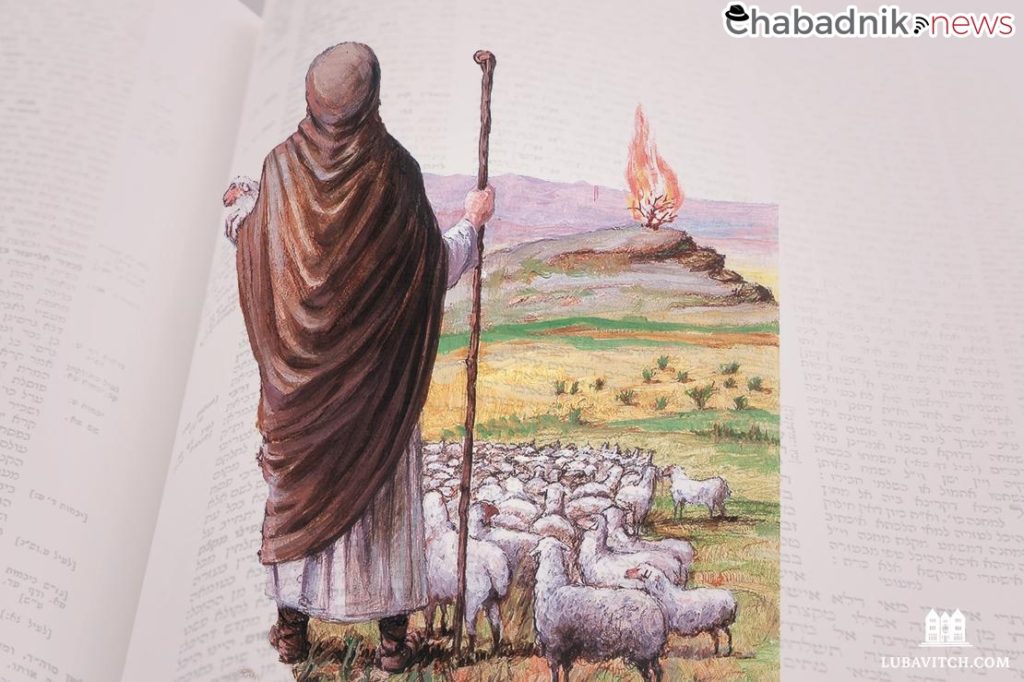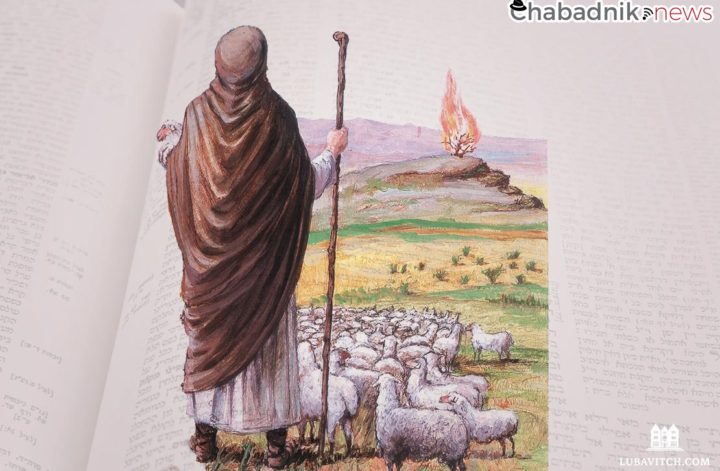
By Rabbi Menachem Brod
Translated By Yoni Brown
The Torah describes that when the daughters of Yitro came home early one day from watching his sheep, they told their father: “An Egyptian man saved us from the shepherds. He also drew water for us and watered the sheep.” The man was none other than Moshe.
It’s not hard to understand why Yitro’s daughters described Moshe as an “Egyptian man” — they didn’t recognize him, and knew only that he was on the run from the Egyptian regime. But why would the Torah record such a derogatory description of the Jewish People’s most distinguished teacher?
Born and Raised
In the Zohar, it is explained that acknowledging Moshe’s Egyptian background is essential to understanding his character. In fact, the Zohar ascribes Moshe’s most remarkable attainments to his classification as an “Egyptian man.”
“Who was Moshe?” the Zohar asks. “He is described as ‘an Egyptian man’ because he was born there, and that’s where he grew up. And it was there that he ascended to his supernal light.”
All this is baffling. It’s no secret that Moshe was Egypt’s worst nightmare. Pharaoh’s paranoia about the birth of a savior of the Jewish people drove him to order all male children drowned in the Nile. This was Moshe, whose great calling was to redeem the Jewish people from Egypt. How could it be that he gained his greatest strength from that very same culture?
Strength through Setbacks
In his classic work on Chasidism, the Tanya, Rabbi Shneur Zalman of Liadi describes the inner struggle of one who prays. “When a Jew is trying to pray but is harassed by distracting thoughts, he should think of those thoughts as sent by Heaven to help him pray with deeper intention,” he writes.
According to this understanding, we find our greatest strength by struggling to overcome negativity. Without the distraction, the Jew’s prayer would have been superficial. When he overcomes distraction, his focus is enhanced. His most profound moments of connection come about when he has fought for it. So too with the physical body, muscles grow only when they are stressed beyond their normal limits.
The Answer to the Challenge
Yes, Moshe’s great advantage was that he was born in the darkest depths of the Egyptian exile. He grew to maturity and achieved his deepest potential by struggling against those extreme challenges. By his defiance of Egyptian culture and its evils, he became Moshe.
Most of us bemoan the blockades that prevent us from being who we could be. Yet, here we see that these are a personal Egypt. The Torah records, “An Egyptian man saved us!” Those blockades invite us to overcome them and find our most incredible achievements on the other side. They jolt us out of our complacency and give us a chance to bring our hidden potential into focus.
Each one of us finds our personal calling by overcoming the darkness only we face. Redemption is born out of embracing challenges and illuminating their darkness. Each personal redemption is one step closer to the emergence of ultimate redemption.



